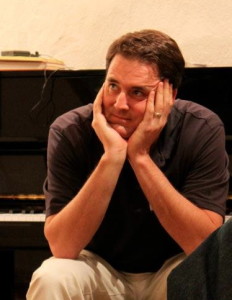
John Dehlin, founder of Mormon Stories, was excommunicated this week.
Mormon church internal affairs have a way of making headlines that other denominations don’t manage. Last year it was when Kate Kelly, founder of the group Ordain Women, was excommunicated. On Monday, John Dehlin, founder of the podcast Mormon Stories, was excommunicated as well – and took the unique step of releasing an transcript of one of his disciplinary meetings to the media.
I’d never heard of Dehlin or his podcast before reading this transcript, but wow, it was a read. In a long and tense conversation, Dehlin’s Stake President (a regional leader) explains that while the doubts Dehlin has about Mormonism – for example, about the historicity of the Book of Mormon or the church’s theology of atonement – were allowed, expressing them in a public forum where he has a following and validates others’ doubts wasn’t. As my colleague summarized it: “Religion is terrified of the World Wide Web.”
Mormonism is in a uniquely difficult position when it comes to doubts, because the Book of Mormon and the life of Joseph Smith are so recent, and therefore so open to historical criticism. But the question of how to handle doubt in an internet age is a relevant one for all religions.
The internet is a big theological jumble. Google isn’t going to tell you which blogs are orthodox when you go looking for answers. Most churches aren’t very good at putting “their” answers out there – let’s face it, church website are by and large terrible. And even when churches do manage to put answers online, the nature of the internet is that it invites talking back – and the nature of orthodoxy is that it doesn’t like to be talked back to.
In the transcript of their conversation, the stake president suggests that Dehlin’s listeners should turn to their church leaders with their doubts, and that Dehlin should have pointed them in that direction. Maybe that’s what people with doubts would have done before they could just google it, but I’m not sure most people would find getting the orthodox answer from a minister any more satisfying than getting it from the official denominational website. The abundance of other people seriously grappling with religious questions – and the abundance of answers available at the click of a button – means that religious traditions are going to have to be open to new ways of handling questions of doubts and orthodoxy.